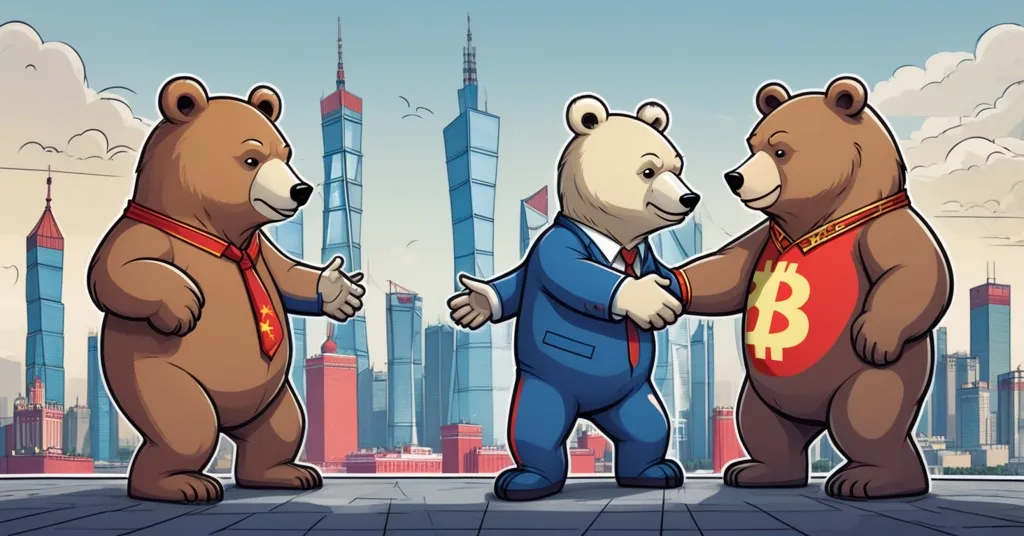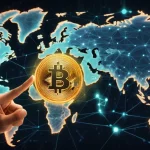Putin and Xi Bolster Russia-China Alliance in Moscow Amid Sanctions and Trade Shifts

Putin and Xi Strengthen Russia-China Ties in Moscow Amid Global Tensions and Economic Sanctions
Russian President Vladimir Putin and Chinese President Xi Jinping have begun crucial bilateral meetings in Moscow, aiming to fortify their strategic partnership amidst cooling trade tensions with the West. This summit, coinciding with Russia’s 80th anniversary of the end of World War II, has drawn leaders from over 20 countries, including Brazil’s President Lula da Silva, to discuss enhanced economic cooperation and coordination in global platforms like BRICS and the G20.
- Putin and Xi meet to strengthen strategic ties.
- Summit marks Russia’s WWII anniversary.
- Over 20 countries, including Brazil, attend.
- Bilateral trade reaches $245 billion in 2024.
- Focus on economic cooperation amidst sanctions.
- Discussions include BRICS and G20 coordination.
The summit in Moscow is a clear signal of the deepening Russia-China alliance, with leaders from over 20 countries, including Brazil’s President Lula da Silva, in attendance. Bilateral trade between Russia and China has soared to a record $245 billion in 2024, more than doubling since 2020. This growth is driven by Russia’s exports of fossil fuels and raw materials to China, and China’s exports of vehicles and electronics to Russia.
A notable aspect of this trade relationship is the sharp increase in Chinese exports of dual-use goods to Russia since 2022. These goods, which can be used for both civilian and military purposes, underscore the deepening economic interdependence between the two nations. Additionally, Russian crude oil exports to China have surged to $62.26 billion in 2024, a 54% increase from 2021, and liquefied natural gas (LNG) exports have tripled since 2019, reaching 8.3 million tonnes in 2024.
The Power of Siberia-1 pipeline, set to reach full capacity by 2025, is a key element of Russia’s strategic shift towards Asia. This pipeline, which began operations in late 2019, will deliver 38 billion cubic meters (bcm) of gas annually, helping Moscow offset the decline in gas exports to the European Union. This move not only strengthens Russia’s economic ties with China but also highlights the geopolitical shifts at play.
Since Russia’s invasion of Ukraine in 2022, China has provided unwavering diplomatic support, declaring a “no limits” friendship with Russia. This alliance has been crucial for Russia in countering Western influence and sanctions. Nearly 40% of Russia’s international trade is now settled in Chinese yuan, signaling a significant shift away from reliance on the US dollar and a deepening economic alliance with China.
The meetings in Moscow are not just about bilateral trade; they also aim to enhance coordination in global platforms like BRICS and the G20. As these discussions unfold, the US watches closely, with former President Donald Trump expressing concerns about the Russia-China partnership. The deepening ties between Moscow and Beijing are seen as a potential threat to American interests, reflecting broader themes of shifting global economic power dynamics.
Despite the optimistic portrayal of their partnership, there have been reports of a slowdown in trade growth in 2024 due to payment hurdles. This adds a layer of complexity to their economic relationship, highlighting potential vulnerabilities. It’s a reminder that even the strongest alliances can face challenges, much like trying to untangle a pair of earphones after they’ve been in your pocket for too long.
As the Russia-China alliance continues to evolve, it’s worth considering how these developments might impact the cryptocurrency market. With nearly 40% of Russia’s international trade now settled in Chinese yuan, there’s potential for increased use of digital currencies in international trade, especially as a means to circumvent Western sanctions. Bitcoin and other cryptocurrencies could play a role in facilitating these transactions, offering a decentralized alternative to traditional financial systems.
Key Takeaways and Questions
- What is the purpose of the bilateral meetings between Putin and Xi in Moscow?
The purpose is to strengthen their strategic partnership and enhance economic cooperation amidst Western sanctions.
- How has the Russia-China trade relationship evolved since 2020?
Bilateral trade has more than doubled, reaching $245 billion in 2024, with significant increases in exports of fossil fuels, raw materials, and dual-use goods. However, growth slowed in 2024 due to payment hurdles.
- What is the significance of the Power of Siberia-1 pipeline?
It helps Moscow offset the decline in gas exports to the European Union by reaching full capacity of 38 bcm by 2025, reinforcing Russia’s strategic pivot towards Asia.
- How has China supported Russia diplomatically since the Ukraine invasion?
China has provided diplomatic support and declared a “no limits” friendship with Russia to counter Western influence.
- What are the implications of the increasing use of the Chinese yuan in Russia’s international trade?
It indicates a shift away from reliance on the US dollar and a deepening economic alliance between Russia and China, potentially reducing vulnerability to Western sanctions.
- Why is the US concerned about the Russia-China partnership?
The US views their partnership as a threat to American interests, as expressed by former President Donald Trump and current administration officials, due to concerns over global power dynamics and the potential erosion of US-Europe relations.
- How might these developments impact the cryptocurrency market?
With increased use of the Chinese yuan in international trade, there’s potential for greater adoption of cryptocurrencies like Bitcoin to facilitate transactions and circumvent Western sanctions.
“We are developing our ties in the interests of both our peoples and not aimed against anyone.” – Владимир Путин (Vladimir Putin)
“Xi’s trip to Moscow gives China a chance to reaffirm its ‘close partnership with Putin’ and to ‘remind the world’ that Beijing and Moscow have ‘solid ties.'” – Patricia Kim, Brookings Institution



